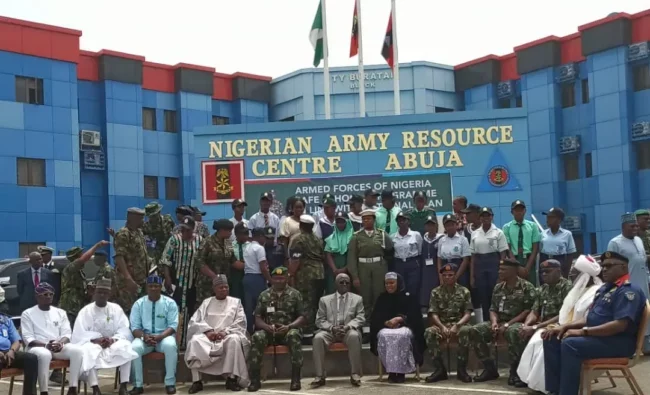Determined to end the incessant abductions currently being witnessed at the nation’s schools, the Military High Command flagged off its Standard Operating Procedure, SOP, for the Safe School Initiative
The launch of the SOP for the military personnel that would be involved in the initiative came after the abductions of schoolchildren in Kaduna, where 287 pupils were kidnapped, and 15 Tsangaya students were kidnapped in Sokoto State.
Speaking while performing the official launching ceremony in Abuja, the Chief of Defence Staff, General Christopher Musa, said the SOP would provide necessary guidelines for members of the Armed Forces to implement the Safe Schools Initiative within the confines of international and national laws.
According to him, “The Armed Forces of Nigeria remain committed to providing every necessary assistance for the security of schoolchildren and other learning institutions against attacks within the ambit of Nigeria’s constitution.
“The volatile, uncertain, complex, and ambiguous nature of the current security environment requires better synergy among the military and other security agencies,” he added.
The CDS, while calling on the stakeholders to work together so as to ensure that schoolchildren were safe in school, said, “The success of such an initiative, without doubt, will require the uttermost commitment of all stakeholders, who are particularly looked up to by the citizens of the country for their security and safety.
“It is therefore in the interest of our dear nation that every stakeholder works assiduously to build a strong, safer, more secure, and prosperous future for our children and our beloved country.”
In his keynote address, Gen. Martin Luther Agwai (retd.), who was the special guest of honour at the occasion, said that the success of the initiative would depend on the collective responsibility of stakeholders and citizens by taking ownership and providing intelligence to security agencies.
He said the move reflected the Armed Forces’ collective commitment to upholding the sanctity of education and creating a conducive environment for teaching and learning to thrive.
According to him, “regrettably for learners as well as teachers currently in schools, the fear of them becoming possible victims and the trauma created by having their fellow students and friends attacked is having a negative impact on the quality of education in our country.
“This initiative must be the collective responsibility of all our communities. Our citizens at all levels of government, civil society, and NGOs must resolve to have a safe school environment for our children by always providing the necessary vital information that is to be acted upon for the good of all.
“Accordingly, all of us must take collective responsibility and ownership for the development of this safety initiative.”
The Head of Financing, Safe Schools Secretariat, and Technical Working Committee, Ministry of Finance, Halima Iliya, said Nigeria’s educational system has always been in deep crisis, ranging from kidnappings to terror attacks.
She said that the Safe School initiative was delayed due to a lack of policy and budgetary allocations to provide needed support.
The Safe School Initiative was launched in 2014 after the abduction of about 300 schoolgirls from Chibok, Borno State, as part of efforts to ensure that children in conflict areas or affected by insecurity continue with their education.
The initiative is largely implemented by the Nigeria Security and Civil Defence Corps with the support of other security agencies.
ALSO READ THESE TOP STORIES FROM NIGERIAN TRIBUNE
